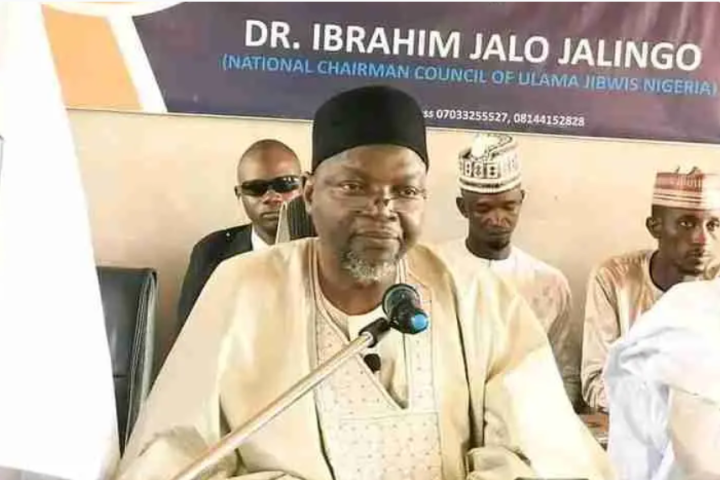A video of Boris Johnson riding his bicycle to a corner shop in London to buy some items has excited Nigerians a lot. Dressed in a black suit, blue shirt, and red tie, with a winter jacket and head warmer, the former UK prime minister is seen picking a few items himself in the store and looking relaxed. At the checkout counter, Johnson chats with the excited shopkeepers and checkout clerks. Outside, he takes photographs with passersby before riding away.
Someone shouts, “Be safe, Boris,’’ and he answers, “I will.’’ No convoy. No police escorts or secret police. The former PM appears like every other person in the neighbourhood. The caption accompanying the video reads, “He is Britain’s former prime minister. See how he lives a normal life, no millions of pounds missing; no buildings scattered all over the world or cars all over England…’’
Join our WhatsApp ChannelEarlier this year, I have also seen a video of the Dutch prime minister driving himself in his own private car to work. No convoy, No SUVs. Only the PM, driving himself. The Ghanaian lady who took the video was exclaiming that she was chatting with the PM of the country who was heard telling her, “I am going to work, and you’re doing your own work.”
Now, compare this with the lifestyles and conducts of our political leaders in office, and those who left office recently or some years ago. We have read about former governors who took away government vehicles as they left office, some as in the case of the former governor of Zamfara State, as many as 57 different vehicles. In and out of office, our politicians continue to live in opulence, with a large retinue of policemen and security detail, all at the expense of the people. Their looted funds are stashed away in foreign banks, laundered through lucrative deals or buried in pits in their compounds. While ordinary citizens continue to wallow in rising poverty and are constantly being called upon to tighten their belts and make more sacrifices, public officials and even former ones continue to live in luxury and illicit wealth. Last Monday, former governor Udom Emmanuel of Akwa Ibom State flew into Uyo in a chartered jet to attend a state function. It costs N10 million to charter a jet just for an hour’s flight. Who footed the N20 million bill for the return flight in that chartered jet for the former governor?
Corruption permeates every branch of government and every cadre of officials. National Assembly members reconvened last month to discover that flat-screen TV sets, computers and other office furniture used by their predecessors in offices at the National Assembly complex have been pilfered. Huge sums are being voted to replace them. What manner of people will steal TV sets from offices and how come there was no single arrest for this?
The culture of a people determines the extent of their economic wellbeing. A culture that celebrates corruption, copious consumption and promotes incompetence and ethnic bigotry over excellence can never create economic development. Nigerians are impressed to see a former prime minister of a G7 country ride his bicycle for grocery shopping himself, but the same Nigerians would celebrate a politician at home who stole billions from the treasury and is living in unexplained opulence. The same people who are admiring Boris Johnson today would deploy ethnic sentiments to defend their kinsman who is arrested for graft. You’d hear such talks like ‘’Leave him alone; he is not the only one. Is he the only one who has stolen money in this country?’’ from his kinsmen. Former Petroleum Minister, Diezani Alison-Madueke, who has been accused by the EFCC of all sorts of corrupt enrichment and has been living in exile since 2015, was recently celebrated by her fellow Ijaw citizen, Ben Murray-Bruce, on social media as a dazzling beauty! I will not be surprised if other Ijaw folks take a cue from Murray-Bruce’s post and start a campaign to “bring our daughter home.’’
READ ALSO: Inflation And Poverty In Nigeria: Explainer
Our political culture condones graft, ineptitude, decadence and waste. People are no longer horrified by stories of high-volume theft, abuse of office, and ineptitude. There is no longer a national outrage against decadence and incompetence in the polity, as we used to have in the 1970s. A new age of moral permissiveness is upon us. Everybody is looking for every opportunity to help himself. It is as if Nigerian citizens are in competition against one another, or in some kind of stampede, to dismember the country and share its resources in a free-for-all struggle. Everywhere you turn, corruption oozes and the people applaud in a frenzy of excitement. Yet, the same people will turn around to complain about how the country has failed them; how the leaders have failed, and how they would like to migrate to where they call “saner climes.’’ Can’t we understand the connection between these unbridled excesses and the helpless economic situation we are in?
The other day, a young man was lynched for stealing a loaf of bread in Yenogoa. He was said to be a fresh university graduate, who came out with an impressive first-class degree. Reports say he has been jobless since graduation and was living in a very desperate situation. But the people spared no efforts in beating him to death for stealing a loaf of bread. But these same people would later in the evening troop to the homes of their political leaders who probably stole millions from the government and shout “we are still loyal sir. Anything for us, sir.’’ That is the way we are!
In 1992, a brilliant political strategist in the United States, James Carville, working for the Bill Clinton presidential campaign, coined the phrase, “It’s the economy, stupid,’’ as one of the three messages to focus on during the campaigns. His message was initially directed at the Democratic Party campaign workers but was later adapted as the buzzword of the season for the Bill Clinton presidential campaign. The US economy was in a recession and Clinton’s campaign used the message to drive home the point that nothing else mattered to the American citizens than fixing the economy. Clinton’s pledge to fix the economy and grow jobs resonated with the voters, so much so that he went on to beat his challenger, President George H. W. Bush.
Thirty-one years later, Nigerians are confronted with rising poverty and cost of living crisis not seen in more than a generation, compounded by massive frauds and corruption that go way back. If the citizens, especially the elites, do not form a consensus and rise up against corruption, incompetence, and decadence, the country will continue to go around in circles, mired by a miserable economic situation. It’s the culture, stupid!

Etim Etim
ETIM ETIM is a journalist, banker and author. He has been a member of the Editorial Board of The Guardian, a Regional Manager in Access Bank and is currently a Columnist in Prime Business Africa, The Cable and Businessday newspapers.
He is also the Chief Executive of Stein Meyer Communications, a major media consultancy and the author of the best-selling book, "Akwa Ibom Heroes: Inside Story of the Fight for Abrogation of Onshore-Offshore Oil Dichotomy" and co-author of another book, "Osinbajo Strides: Defining Moments of an Innovative Leader".


















Follow Us